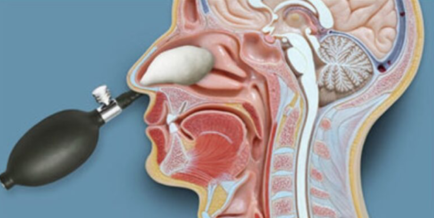Have you ever wondered if there’s a natural solution for chronic sinusitis, migraines, or facial pain? As someone who’s spent years researching alternative therapeutic approaches, I’m excited to share insights about a fascinating technique called Cranial Facial Release (CFR). This innovative treatment has been gaining attention in the wellness community, and for good reason.
What Exactly is Cranial Facial Release?
Cranial Facial Release, often abbreviated as CFR, is an advanced endonasal cranial technique that aims to improve central nervous system function by releasing restrictions in the cranial system. Think of it as a reset button for your facial structure and associated neural pathways.
The Science Behind CFR
The technique works on a fascinating principle: our skull isn’t one solid piece but rather a complex structure of 22 bones that should have subtle, rhythmic movements. When these movements become restricted, various health issues can emerge. CFR uses specially designed balloons inserted through the nasal passages to mobilize these cranial bones and restore proper movement.
Key Benefits of CFR Treatment
1. Respiratory Enhancement
One of the most remarkable benefits of CFR is its impact on breathing. Many patients report:
- Improved nasal breathing
- Reduced snoring
- Better sleep quality
- Enhanced athletic performance
- Relief from chronic sinusitis
2. Neurological Improvements
The treatment’s effects on the nervous system are particularly noteworthy:
- Reduced frequency and intensity of migraines
- Better focus and mental clarity
- Improved balance and coordination
- Enhanced sensory processing
3. Structural Benefits
CFR can help address various structural issues:
- Better facial symmetry
- Reduced TMJ symptoms
- Improved dental alignment
- Relief from facial pain and pressure
Who Can Benefit from CFR?
While CFR isn’t a one-size-fits-all solution, it has shown promising results for people dealing with:
- Chronic sinus problems
- Sleep apnea
- Frequent headaches
- TMJ disorders
- Facial pain
- Vision problems
- Balance issues
- Learning difficulties
- Athletic performance concerns
The CFR Treatment Experience
What to Expect During Treatment
Many people ask me what the procedure feels like. CFR is typically performed in a series of 4-6 treatments spaced several days apart. Each session usually takes about 15-20 minutes. During the procedure, small finger-cots (balloon-like devices) are inserted into the nasal passages and briefly inflated to mobilize the cranial bones.
While the sensation can be unusual – some describe it as a brief pressure or momentary discomfort – most patients find it completely manageable. The effects are often felt immediately, with many reporting a sense of openness in their nasal passages and increased clarity right after treatment.
Scientific Support and Research
While CFR is considered an alternative therapy, its foundations are rooted in established anatomical principles. The technique builds on the work of early osteopathic pioneers who recognized the importance of cranial bone mobility. Modern research continues to explore the relationships between cranial bone movement, cerebrospinal fluid flow, and overall health.
Comparing CFR with Other Treatments
CFR vs. Traditional Methods
Unlike many conventional treatments that often focus on symptom management, CFR addresses underlying structural issues. For example:
- While decongestants provide temporary relief, CFR aims to improve natural sinus drainage
- Instead of using sleep aids, CFR works to enhance natural breathing patterns
- Rather than relying on pain medication for headaches, CFR addresses potential structural causes
Important Considerations
When to Consider CFR
Consider exploring CFR if:
- You’ve tried conventional treatments without satisfactory results
- You prefer non-pharmaceutical approaches to health
- You’re looking for a preventive health strategy
- You want to optimize your breathing and neural function
Finding a Qualified Practitioner
It’s crucial to work with a properly trained and certified CFR practitioner. Look for:
- Specific CFR certification
- Experience with your particular condition
- Willingness to explain the procedure thoroughly
- Clear communication about expected outcomes
Real-World Applications
CFR’s benefits extend beyond clinical settings. Athletes have reported improved performance through better breathing efficiency. Students have experienced enhanced focus and concentration. Even performers have noted improved vocal abilities due to optimized nasal passages.
Looking Ahead: The Future of CFR
As more practitioners adopt this technique and research continues, we’re likely to see expanded applications and refinements in the procedure. The growing interest in natural healing methods suggests that CFR may become increasingly mainstream in the coming years.
Conclusion
Cranial Facial Release represents an innovative approach to addressing various health challenges through structural optimization. While it may not be suitable for everyone, its non-invasive nature and potential benefits make it worth considering for those seeking alternative solutions to chronic conditions.
As with any treatment, it’s essential to consult with healthcare professionals to determine if CFR is appropriate for your specific situation. The journey to optimal health often involves exploring various approaches, and CFR might just be the missing piece in your wellness puzzle.



